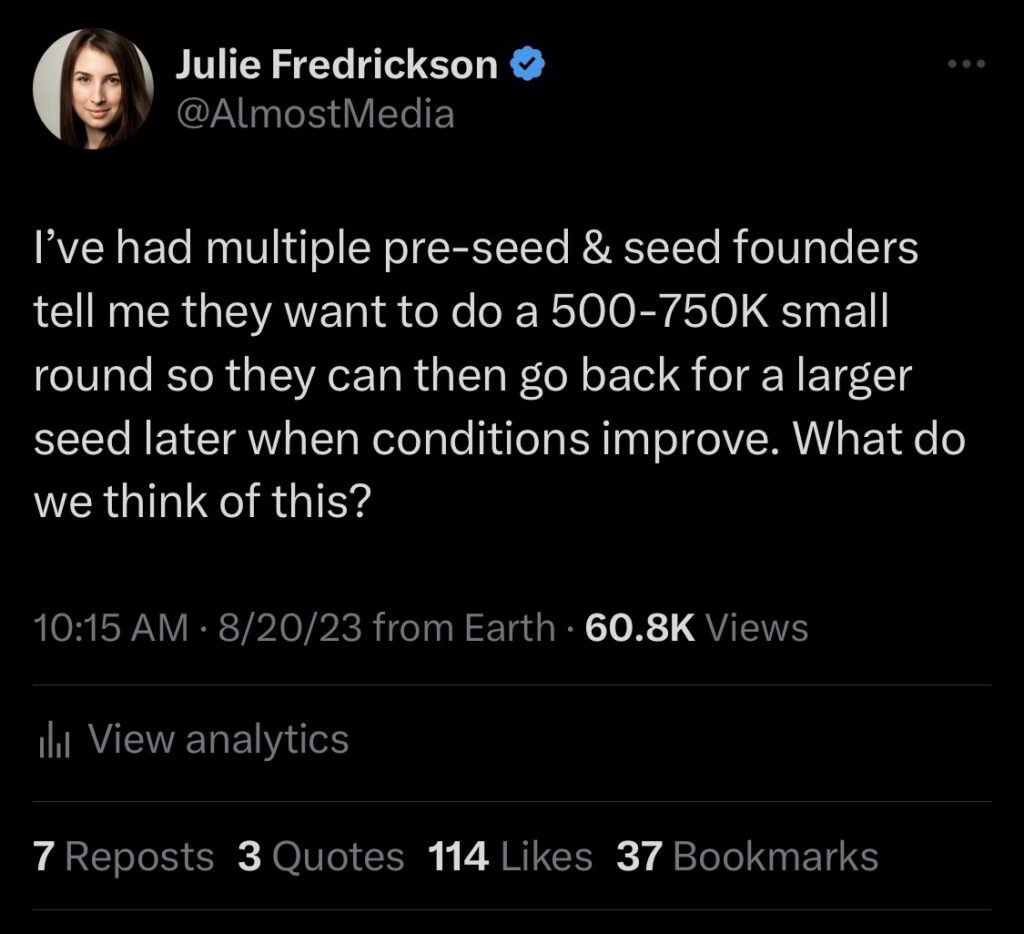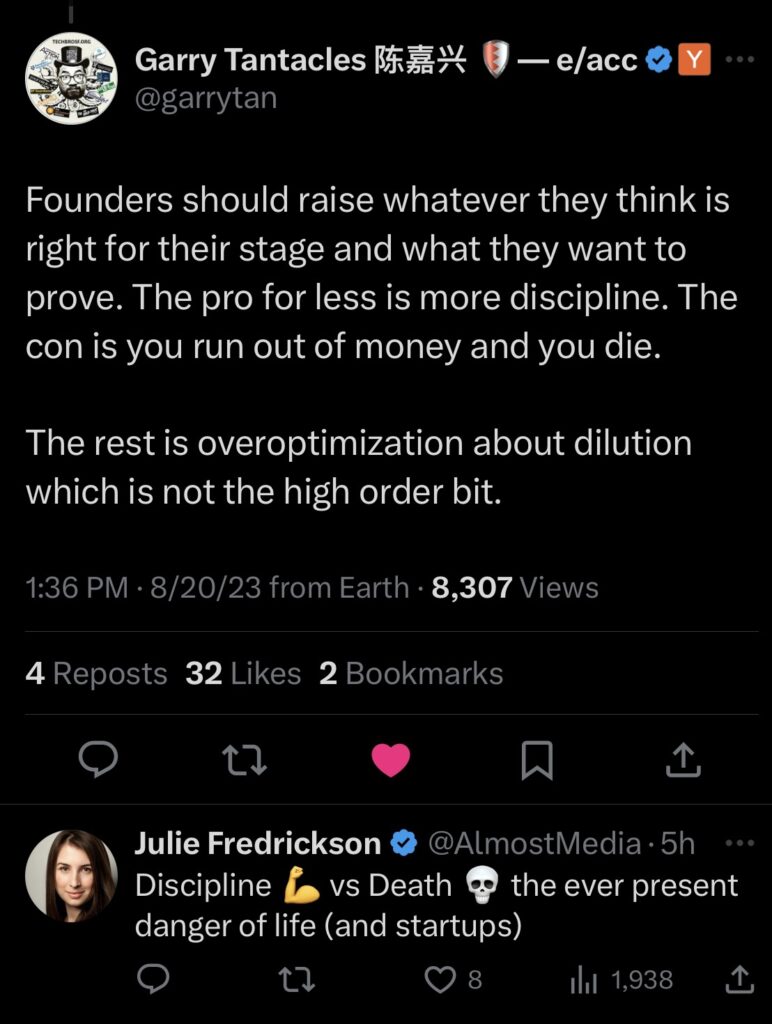I enjoyed a little moment in the sun yesterday when Axios’ Pro Rata featured my pre-seed venture fund chaotic.capital as part of a deep dive on resiliency technology investing. Or if you prefer disaster tech. It was a proud moment for me.
Because I’ve been trained to never miss an opportunity for reasserting who you are and what you stand for I thought I’d publish a portion of the market insights section of my investor letter for the fund. If you want to see the bets, the behind the scenes (hands on is an understatement), and the founders we back I’d welcome accredited investors to see if we’d make sense for you. Slide into my DMs or for the time conserving decisive HNI hop onto AngelList and apply to be an LP in 2 minutes flat.
What is Chaotic Capital?
In an era of institutional distrust, social change, and global instability, we invest in ideas that adapt humanity to our new chaotic era. What does that mean? We like things that help small groups have the impact of big groups and big groups have the agility of small groups. Enabling resilience in the face of unexpected & rapid change is our lodestar.
I publish an investor letter every quarter and you can always visit jfredrickson.com, where I write every single day about whatever I’m thinking about. You are also welcome to DM me on Twitter @AlmostMedia or text me on Signal. My email is julie at chaotic dot capital.
Market Insights on Q223
The rise of cryptography, machine learning, and artificial general intelligence are overlaid onto a geopolitical reality of resource competition in an increasingly multi-polar world. To use an entirely different metaphor, chaos is a ladder that we are here to climb.
Our thesis at chaotic.capital centered on identifying, investing in, and supporting companies that adapt our lives, businesses & systems to the opportunities and challenges that chaos brings. We call it resilience technology.
We believe these companies will generate outsized returns over the next decade as individuals, companies, and societies look to become more flexible, independent, and sustainable. But it’s bigger than that.
Most builders remain deeply skeptical of Noble Lies, “for your own good” safetyism, regulatory capture, oligopoly control, and the centralized nation state control as the most effective methodology of innovation for a dynamic pluralistic human future. We are having cultural and financial reformations at a frightening speed. It’s beyond future shock now.
Twitter critics can stroke their chin with practiced skepticism, but if you believe in American Dynamism as I do, you know that our history has shown that it is resilient, flexible, brilliant individuals coming together which defeats the totalitarian and slays the no-win scenario. You have to enable the brilliant weirdos and trust them to solve problems.
Like Captain Kirk once said to Spock, we must make the best guesses we can.
Spock: Mr. Scott cannot give me exact figures, Admiral, so… I will make a guess.
James T. Kirk: A guess? You, Spock? That’s extraordinary.
Spock: [to McCoy] I don’t think he understands.
Leonard McCoy: No, Spock. He means that he feels safer about your guesses than most other people’s facts.
Spock: Then you’re saying… it is a compliment?
Leonard McCoy: It is.
Spock: Ah. Then I will try to make the best guess I can.
Star Trek IV: The Voyage Home
My best guess? As your chosen doomer-optimist, crypto-libertarian. American-patriot, dynamic futurist, pre-seed emerging fund manager, who has plenty of facts but still has the responsibility of making decisions without full information? Tools for everyone wins the future.
It will take all of us coordinating in freedom to defeat Moloch from sacrificing more of us. Uncle Screwtape wants our egos to believe we can deliver safety and control, we know it is a lie. The Ring of Power tempts us to consider “why not me? Don’t I deserve this power?”
Choose your franchise my fellow nerds and chosen ones; because you know the crown is heavy, the ring perverts, and absolute power corrupts absolutely. So what do we do? We band together. And we enable more of us to join our merry band of future builders.
To balance out centralizing forces, institutional preservation and “we had no choice” moralizing malfeasance, we must give the people tools to build because sometimes our best guesses are demonstrably better than other people’s “facts”

